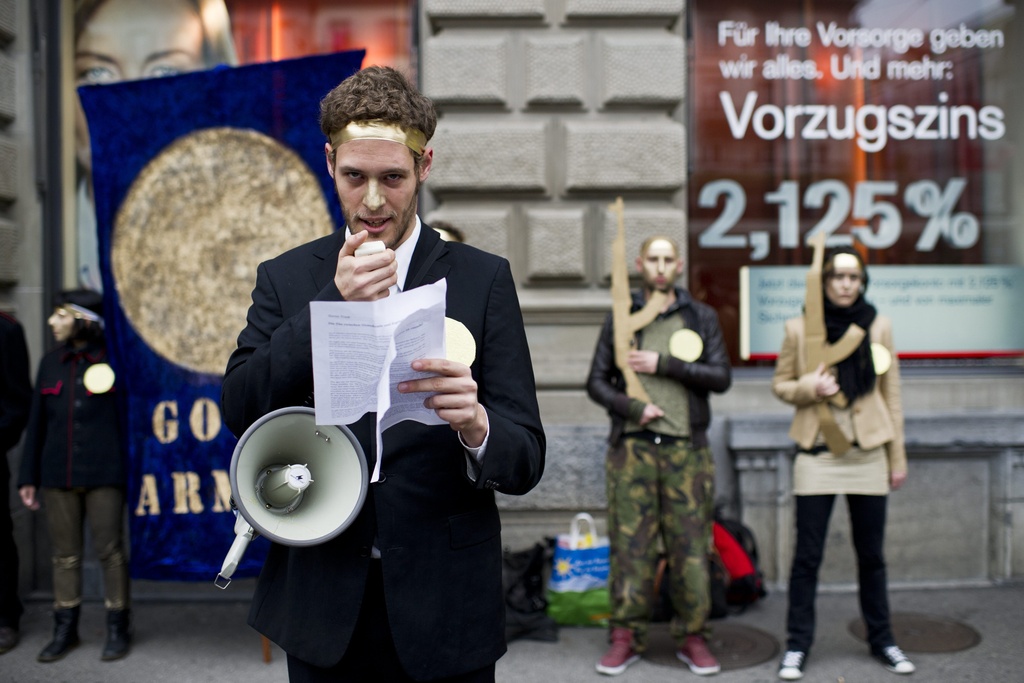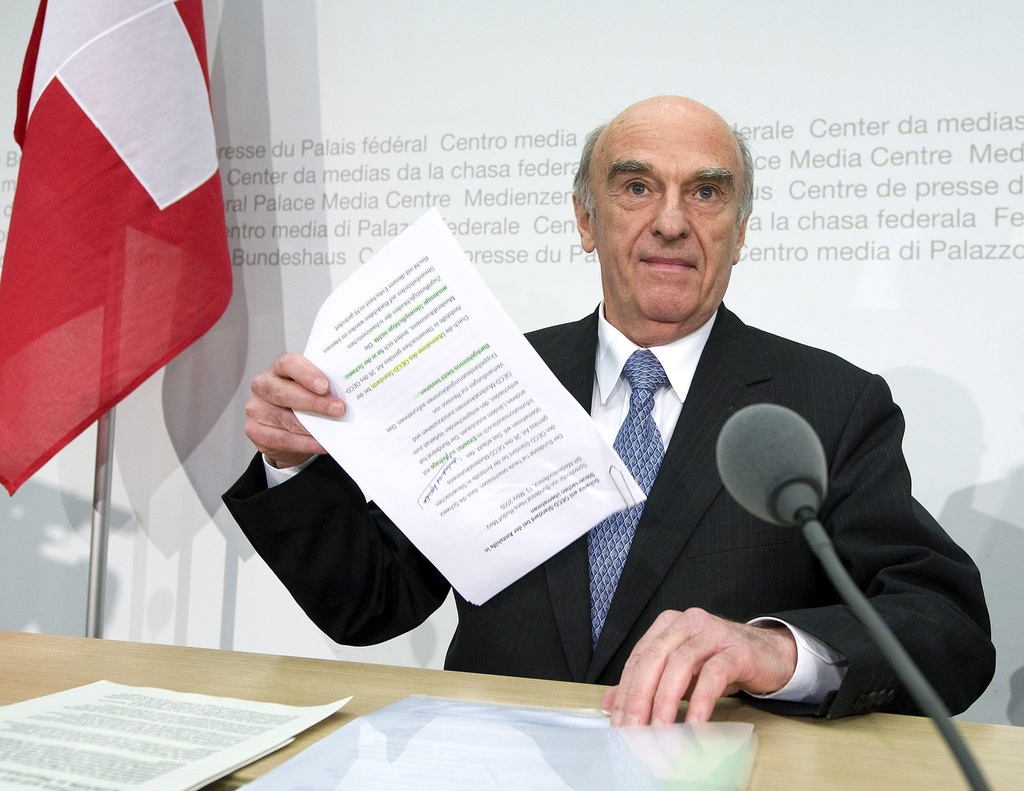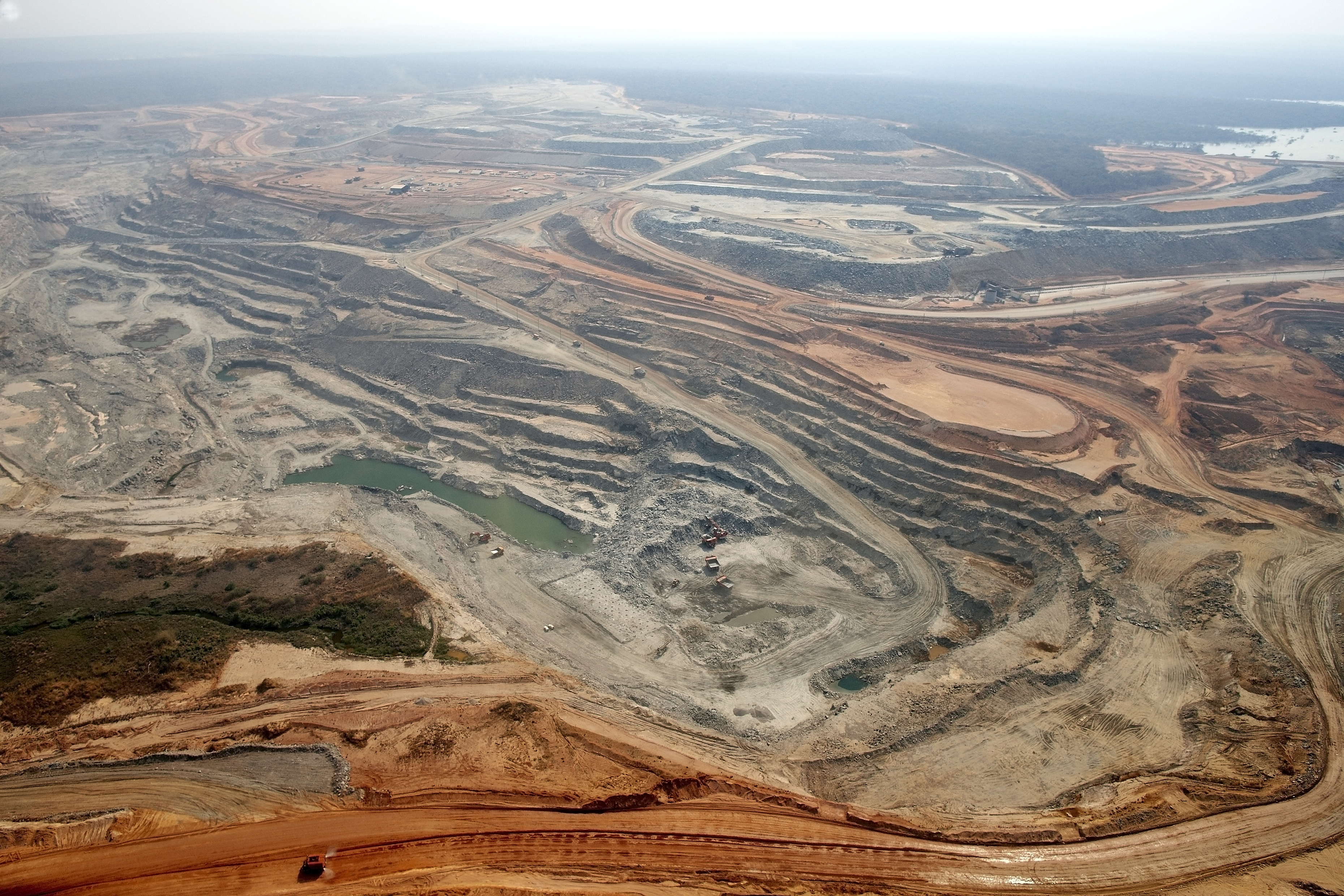Swiss Indignados take to streets

Up to 1,000 protestors took over Zurich’s Paradeplatz, the symbolic heart of the Swiss banking industry, on Saturday as the Occupy movement went global.
Peaceful Wall Street-style protests were also held in Geneva, Basel and Bern, as well as in hundreds of cities around the world as part of a day of action protesting against capitalism and austerity measures.
“I’m here as I want to tell the banks and those in power that things have to change,” said Angelo Zehr, a 21-year-old student from St Gallen, waving a cardboard sign “We are the 99%”.
“We’re fighting for a fairer world where everyone has the chance to make a good living. It’s unjust that one per cent of the population have the same amount of wealth as the remaining 99 per cent.”
Organisers had spread the word through Facebook and Twitter and people started to gather at Paradeplatz from 10am on the freezing autumn day.
By lunchtime the trams that snake through the square past the UBS and Credit Suisse Swiss headquarters had been cancelled as the crowd swelled.
Festive air
The square took on a festive air as groups of mostly young people set up coffee and soup stalls as well as the odd tent, organised homemade versions of Monopoly to the sound of drum beats, painted placards and talked politics.
Meanwhile bemused Chinese tourists and shoppers filed past down Bahnhofstrasse, one of the richest shopping streets in the world.
“Most young people like me feel that things are going wrong in the world,” said Stephan Stork, a film and theatre student from Zurich.
“We live well here in Switzerland; I can buy fair trade products but that’s not enough for me. It’s not just about maintaining our standard of living but global justice. Capitalism is not democracy. We need change.”
The roots of the current wave of protests, which combine anger at the bail-out of the financial sector together with concern over the faltering global economy and increased inequality, are in mass marches earlier this year in Spain – the original “Indignados” or indignant ones.
It gathered attention with the Occupy Wall Street campaign, which started a month ago, and has since spread virally via social media across the United States.
Anger at banks
Much of the anger on Saturday was directed at the banks. UBS and Credit Suisse front windows were plastered with stickers, posters and other written messages, “End speculation”, “Freedom begins together”, “Stop corruption and tax the banks”.
“Swiss people were very angry with the bailout of UBS. They felt it was obscene that bank executives received bonuses at the same time as they almost crashed the entire economy. That does not sit well with the Swiss tradition of justice and fairness,” said Douglas, an American who runs an English language business in Zurich.
“The media likes to portray this movement as disaffected, anarchic unemployed students, which is not correct. We are the conservatives. The radicals are in the banks.”
Ueli Wildberger, an elderly activist, also took a swipe at the banking system.
“We had to save UBS with billions and billions of Swiss francs so we are all paying for this crisis,” he said.
The global movement has been dismissed for its lack of focus. In Zurich there were a multitude of different messages: “Tobin tax now” and “Eat the rich” placards were waved alongside “Free Gaza”, “What makes you happy?” and “Occupy the planet”.
“The media criticises us for not having a clear message but we’re fighting so many different things it would be difficult to have one distinct aim,” said American student Mia Hammersley, who made the three-hour train journey from Lugano in Italian-speaking Switzerland to “show solidarity with the Occupy Wall Street protests back home”.
Ripple effect
Meanwhile in Geneva, some 300 people responded to the call to rally in front of the United Nations building to show their indignation against the banking system on Saturday afternoon.
Basel was also the scene of a small protest of 100 people in front of the Bank of International Settlements, while 50 people attended an event in Bern. The Swiss gatherings were peaceful despite not having received police authorisation to demonstrate.
Other demonstrations in Europe varied in size and tone with the largest crowd assembling in Rome. Organisers there put the figure at “well over” 100,000.
A small group of masked demonstrators in the Italian capital set fire to cars and smashed shop windows. The protest appears to have been stirred up by the national context: Prime Minister Silvio Berlusconi survived a no-confidence vote on Friday.
In London up to 1,000 demonstrators gathered at St Paul’s Cathedral and the London Stock Exchange. Demonstrators chanted “We are the 99%” and cheered an appearance by Wikileaks founder Julian Assange.
Around 4,000 people marched through the streets of Berlin, while in Frankfurt, Europe’s financial capital, some 5,000 people protested in front of the European Central Bank.
May 15, 2011: Around 20,000 people demonstrated in several Spanish cities. This gave rise to the movement 15-M or the Indignados.
The demonstrations spread to Berlin, Brussels, London, Paris, Athens and Tel Aviv, where hundreds and thousands of young people took to the streets calling for more democracy and a better future.
By the end of September the protests had reached the US. A group of young people occupied the Zuccotti Park near Wall Street. Their slogan: we are the 99%. Demonstrations have spread to all the main cities in the country.
The young Indignados are not part of any traditional political movement. But their claims are supported by several parties on the left, intellectuals, politicians and economists – including the former economics Nobel prize winner and former chief economist at the World Bank Joseph Stiglitz and Paul Krugman.
October 15, 2011: protests go global, including in Zurich, Basel and Geneva in Switzerland. The organisers of the Swiss protests said they were coming out for a transparent financial system and for the banks to have less say.

In compliance with the JTI standards
More: SWI swissinfo.ch certified by the Journalism Trust Initiative
















You can find an overview of ongoing debates with our journalists here . Please join us!
If you want to start a conversation about a topic raised in this article or want to report factual errors, email us at english@swissinfo.ch.